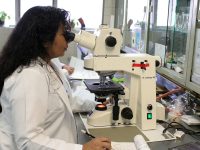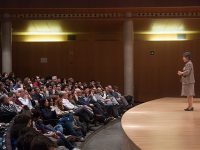
Josep Pla, one of the brightest twentieth-century Catalan writers, asserted in an article published in 1945 that commercial aviation was «one of the most catastrophic businesses to have ever existed» while lamenting «the nonsense we have to read alleging the benefits of aviation, like bringing people closer and erasing distance and borders». Later, in 1965, he argued doggedly in favour of nuclear power, and proposed that the first nuclear power plant should be built in the Catalan town of Pals; indeed, it is hard to imagine a more inappropriate site, in the very heart of the Costa Brava. There was certainly room for improvement of the techno-scientific criteria of this great prose writer…
«I have a theory it is like this or like that» you often hear people say. In the vernacular, theory amounts to opinion. Everyone has theories. Pla had his theory about civil aviation. In fact, he believed without theorising. Most of the opinions you hear going around are based on mistaken theories. The problem of those who claim to have theories about things is that they do not usually have any theories about anything at all. They express opinions based on emotions or desires, not on theorised knowledge. It has been like this since ancient times, and it still is. Social networks on the Internet –made possible by techno-scientific advances– have paradoxically boosted this horde of pundits lacking theory.
Scientific theory is a modern invention. Many people, even those believed to be educated, express reservations or rejection of facts underpinned by solid scientific theorisation, simply because they upset their unfounded opinions. The theory of evolution, which concerns everyone for obvious reasons, is one of the most contested. «It’s just a theory», you hear them say. They confuse theory with hypothesis, even conjecture. Misunderstanding leads to contrast theory and practice. Or to give the term «theoretical» a semantic scope bordering on «unreal». «In theory you can, but when it comes to reality…».
«In the vernacular theory amounts to opinion. Everyone has theories. But most of the opinions you hear going around are based on mistaken theories»
When we talk about the theory of evolution, the theory of plate tectonics and continental drift, or the theory of relativity, we refer to a verified body of knowledge, hypotheses that have been empirically or deductively contrasted, left, right and centre. To scoff at the theory of evolution by brandishing biblical stories of literary nature shows colossal epistemological weakness. It is hard to believe that some allegedly philosophical or theological schools made this blunder. Sometimes I think it has been a mistake to use the term «theory» to refer to scientific theorising. It is misleading, especially for those who revel in blundering.
For mathematicians, a theory is a set of logically related propositions. For general science, a theory is a model of reality that explains, rlelates and predicts something in a way that is testable by experiment or observation. If you cannot verify what the theory postulates with facts, or if new facts appear that the theory did not foresee, then the postulates or propositions of the theory must be modified, and, if that is impractical, it must be abandoned altogether.
The strength of scientific theory lies in the procedural rigor, which is –after all– the rigor of the scientific method itself: it does not admit revelations or preconceptions, only hypotheses or conjectures that are dismissed if they cannot be demonstrated.
Obviously some scientists may cheat. But science itself does not cheat; it is an honest reaction against customary cheating, in fact. So when science gives an opinion about aviation –after inventing it, by the way– it is based upon fact, not upon prejudice. And, as stated by Alfred North Whitehead, mathematician and philosopher, «there is nothing more practical than a good theory».





